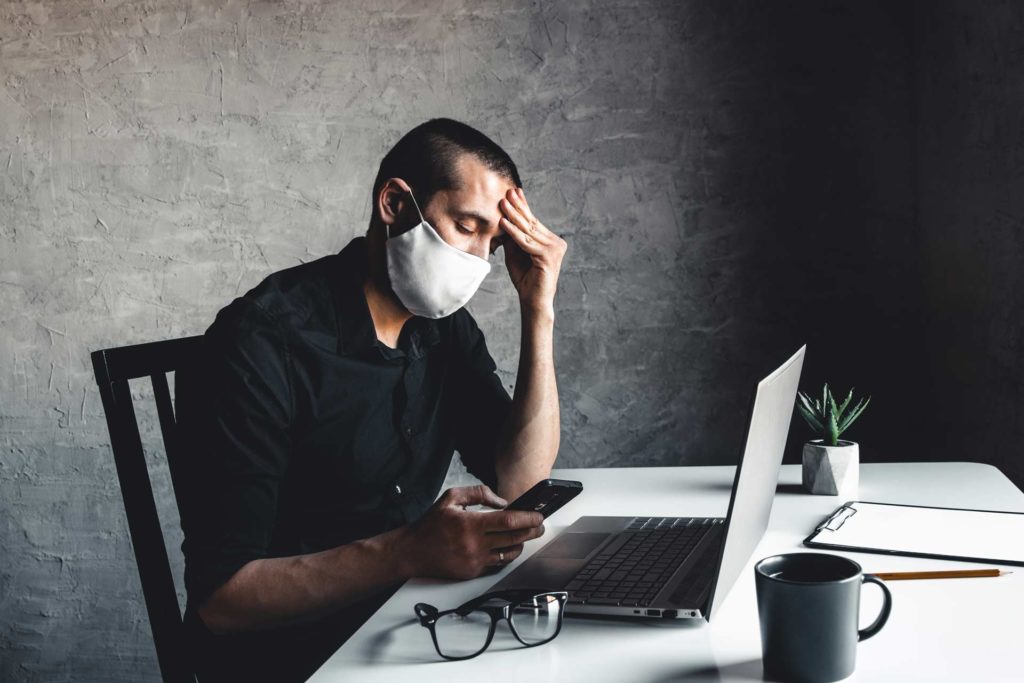Federated Health Charities’ mission is to improve the health and quality of life of all Ontarians by supporting 21 different health charities providing critical services to those experiencing, or affected by, illness. We believe education and prevention are key parts of supporting the health of our communities so our weekly Health Hint series strives to provide tangible and easy to implement hints and tips on how to maintain your health, prevent disease, and enjoy increased quality of life. Check out our latest Health Hint on the impacts of loneliness & isolation. We hope you find it helpful. If you would like to join our efforts to support the health of Ontario please consider a donation to Federated Health Charities.
Loneliness
People often think of loneliness as a product of being alone, but loneliness is just the feeling of being alone, regardless of the level of social interaction and connectedness one has (CDC, 2021). One does not have to be alone to feel lonely. One simply needs to feel dissatisfaction with their levels of connection to experience loneliness (Novotney, 2019).
Feeling lonely is a natural response and most of us will experience it at one point in our lives. Reactive loneliness is in response to a specific occurrence, such as the loss of a loved one or a relationship ending (Novotney, 2019). This type of loneliness is directly connected to a life change and tends to be temporary, often fading as one adjusts to their new life circumstance. Where loneliness becomes more problematic is when it becomes chronic. Chronic loneliness isn’t connected to a specific occurrence, but rather to an ongoing lack of social or emotional outlets to satisfy internal needs. Prolonged feelings of loneliness have shown to be connected to negative health consequences (Novotney, 2019).
Isolation
The terms loneliness and isolation often get used interchangeably when, in fact, they are different. As discussed, loneliness is a feeling, whereas isolation is a circumstance. Isolation is when one is separated from others, whether physically separate or emotionally separated. Emotional isolation shares elements with loneliness as the feeling of being socially isolated can be real or perceived (Good Therapy, 2018). Like loneliness, prolonged isolation has been linked to serious negative health outcomes.
Who Is Affected?
No one is immune to feeling lonely or becoming isolated, but some are at a greater risk for it than others. As people pass middle age their chances of becoming lonely or isolated increase. This has been linked to the loss of loved ones, children leaving the home, living alone, or increased rates of illness or health concerns (CDC, 2021). Other populations that experience increased rates of loneliness and/or isolation include LQBTQ+ and immigrant communities due to increased experiences of discrimination, stigmatization, and a disconnect to health care and community resources (CDC, 2021).
Impacts
Both loneliness and isolation, whether real or perceived, have been linked to serious health consequences. Research has shown the impacts of loneliness and isolation to include:
- low self-esteem, social anxiety, depression
- increased risk of suicide
- increased risk of premature death
- significantly increased risk of dementia
- increased risk of heart disease, high blood pressure and stroke
- poor sleep quality
- impaired executive functioning
- impaired immunity
- higher levels of stress hormones and inflammation
From: (Good Therapy, 2018) (Novotney, 2019) (CDC, 2021)
Solutions
Since both loneliness and isolation can be perceived, rather than reality, focusing on addressing negative thought patterns that underly the feelings of loneliness and isolation can often be the first step (Novotney, 2019). To combat real isolation and loneliness, it is important focus on fostering connection to groups and communities in order to maintain a sense of belonging and purpose (Novotney, 2019). This could include church groups, clubs, group travel, sports or recreation activities, meet up groups, friendship apps, and more.
Since we are social beings, by nature, it is critical for us to have social and emotional connections in order to live long and healthy lives.
We hope you liked our latest Health Hint!
(Good Therapy, 2018)
(CDC, 2021)
(Novotney, 2019)
Resources:
Good Therapy. (2018). Isolation. Good Therapy. https://www.goodtherapy.org/learn-about-therapy/issues/isolation
CDC. (2021). Loneliness and Social Isolation Linked to Serious Health Conditions. Centre for Disease Control and Prevention. https://www.cdc.gov/aging/publications/features/lonely-older-adults.html
Novotney, A. (2019). The risks of social isolation. American Psychological Association. https://www.apa.org/monitor/2019/05/ce-corner-isolation
